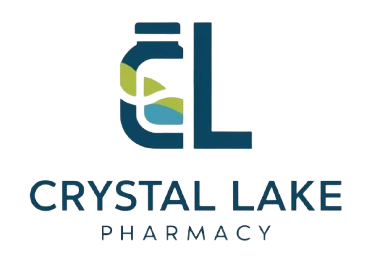Yes, pharmacists can treat many minor ailments including pink eye, urinary tract infections, cold sores, allergies, and skin conditions. In many places, they can assess your symptoms and prescribe medicines without you seeing a doctor first.
This guide will help you understand what minor ailments pharmacists can treat, when to visit your pharmacist instead of a doctor, and how this service can save you time and money while keeping you healthy.
What Are Minor Ailments?
Minor ailments are common health problems that are usually not serious and often get better on their own. These conditions can be treated with simple medicines and don’t need blood tests or special equipment to diagnose.
Minor ailments are generally conditions that are less serious for which you can look after yourself and may not need to see your doctor. They are also self-limiting, meaning they only last for a short period of time.
Key Features of Minor Ailments:
- Usually short-term (last days to weeks)
- Not life-threatening
- Can be treated with over-the-counter or simple prescription medicines
- Don’t need lab tests or X-rays
- Often get better by themselves with time
Common Minor Ailments Pharmacists Can Treat
Skin and Eye Conditions
Pink Eye (Conjunctivitis) Pharmacists can assess and treat conjunctivitis, including bacterial, allergic, and viral types. The National Eye Institute reports that conjunctivitis is one of the most common eye conditions, affecting millions of people annually. Symptoms include red, itchy eyes with discharge. Your pharmacist can tell what type you have and give you the right treatment.
Acne Mild to moderate acne can be treated by pharmacists. They can prescribe stronger creams and medicines than what you can buy without a prescription.
Dermatitis and Eczema Skin conditions like allergic reactions, contact dermatitis, and eczema can be assessed and treated. Your pharmacist can recommend the right creams and treatments.
Cold Sores Cold sores begin with itching, tingling, or burning at the border of the lip, followed by painful blisters that crust over and heal within 7-10 days. Pharmacists can prescribe antiviral medicines to help them heal faster.
Infections and Inflammatory Conditions
Urinary Tract Infections (UTIs) Pharmacists can assess and treat UTIs, which are common infections that affect the bladder. According to the CDC, UTIs affect about 8.1 million visits to healthcare providers each year, making them one of the most common bacterial infections. They can prescribe antibiotics after checking your symptoms.
Impetigo This bacterial skin infection causes small, crusty sores. Pharmacists can prescribe antibiotic creams or medicines to clear it up.
Oral Thrush White patches in the mouth can be treated with antifungal medicines that pharmacists can prescribe.
Digestive Issues
Heartburn and GERD Pharmacists are authorized to prescribe medications for gastroesophageal reflux disease (GERD). They can help manage acid reflux symptoms with the right medicines.
Hemorrhoids Painful swelling around the bottom can be treated with special creams and medicines that pharmacists can prescribe.
Allergies and Respiratory Issues
Allergic Rhinitis (Hay Fever) Pharmacists can assess and treat allergies, including seasonal allergies that cause sneezing, runny nose, and itchy eyes. The American Academy of Allergy, Asthma & Immunology states that allergic rhinitis affects approximately 25% of adults and 40% of children, making it one of the most common chronic conditions in the United States.
Insect Bites and Hives Reactions to bug bites or other allergens can be treated with antihistamines and topical treatments.
Women’s Health
Menstrual Cramps (Dysmenorrhea) Painful periods can be managed with prescription pain relievers and other treatments.
Diaper Rash Parents can get help for their babies’ diaper rash with prescription creams when over-the-counter treatments aren’t working.
Other Common Conditions
Canker Sores Small, painful sores in the mouth can be treated with prescription gels and rinses.
Tick Bites Pharmacists can provide treatment for tick bites, including post-exposure prophylaxis when presented within 72 hours of a suspected tick bite.
How Pharmacists Assess and Treat Minor Ailments
The Assessment Process
When you visit a pharmacist for a minor ailment, they will:
- Ask about your symptoms – When did they start? How bad are they?
- Review your medical history – Current medicines, allergies, other health conditions
- Check for warning signs – Making sure it’s not something more serious
- Examine if needed – Looking at rashes, checking your throat, etc.
Treatment Options
Based on their assessment, your pharmacist might:
- Recommend self-care – Rest, fluids, warm compresses
- Suggest over-the-counter medicines – Pain relievers, cough syrups, creams
- Prescribe stronger medicines – Antibiotics, prescription creams, stronger pain relievers
- Refer you to a doctor – If your condition is more serious than expected
When to See a Pharmacist vs. a Doctor
See Your Pharmacist First For:
- Mild symptoms that started recently
- Conditions you’ve had before
- When you need quick access to care
- Minor infections like UTIs or pink eye
- Skin problems like rashes or acne
See a Doctor For:
- Severe symptoms
- Symptoms that aren’t getting better
- High fever or signs of serious illness
- Chest pain or trouble breathing
- Conditions that need tests or procedures
Benefits of Seeing a Pharmacist for Minor Ailments
Convenience and Speed
Pharmacists are among the most accessible healthcare professionals – you can get help the same day, often within minutes, without waiting days for an appointment.
Cost-Effective Care
Many pharmacist consultations are covered by health insurance, and you can get both the assessment and treatment in one visit.
Expert Medication Knowledge
Pharmacists are experts in medicines. They know which treatments work best and can spot problems with your other medications.
Reduced Wait Times
Pharmacist prescribing has demonstrated valuable benefits to the health system, with Nova Scotia seeing a 9.2% drop in emergency room visits for minor ailments. The American Pharmacists Association notes that pharmacists are among the most accessible healthcare professionals, helping reduce strain on emergency departments and urgent care centers.
What to Expect During Your Visit
Before Your Visit
- Write down your symptoms and when they started
- Bring a list of current medicines
- Have your health insurance card ready
- Think about what treatments you’ve already tried
During the Consultation
Most pharmacist consultations happen in a private area where you can discuss your symptoms confidentially. The pharmacist will ask questions and may need to examine the affected area.
After Treatment
Your pharmacist will:
- Explain how to take any prescribed medicines
- Tell you when to expect improvement
- Schedule follow-up if needed
- Contact your family doctor about the treatment
Cost and Coverage
In the United States
Pharmacist consultation fees vary by location and insurance coverage. Many insurance plans cover these services, especially when they help avoid more expensive doctor visits.
Coverage Benefits
- Often covered by health insurance
- Lower cost than urgent care or emergency room visits
- Can prevent more serious (and expensive) health problems
Safety and Professional Standards
Trained Healthcare Professionals
Pharmacists are licensed healthcare professionals bound by the same confidentiality rules as family doctors or nurse practitioners. Your health information is private and protected.
Professional Oversight
Pharmacists follow strict guidelines for treating minor ailments. According to the National Association of Boards of Pharmacy, pharmacists must complete special training and follow safety protocols to make sure you get the right care. They must maintain continuing education and meet strict licensing requirements to provide these services.
When to Seek Additional Care
If your symptoms don’t improve or get worse, your pharmacist will help you get the right care from other healthcare providers.
Tips for Getting the Most from Your Pharmacist Visit
Be Prepared
- Describe your symptoms clearly
- Mention any treatments you’ve tried
- Ask questions about your treatment
Follow Instructions
- Take medicines exactly as prescribed
- Don’t stop treatment early even if you feel better
- Contact your pharmacist if you have problems
Stay in Touch
- Keep follow-up appointments
- Let your pharmacist know how you’re feeling
- Report any side effects right away
Finding the Right Pharmacy Services
What to Look For
- Medication therapy management services
- Private consultation areas
- Experienced pharmacists
- Good insurance coverage
Services That Complement Minor Ailment Care
- Compounding for custom medications
- Vaccination services
- Prescription fulfillment and transfers
Special Considerations
Children and Minor Ailments
Some conditions can be treated in children, but age limits may apply. Always ask your pharmacist about age-appropriate treatments.
Pregnancy and Breastfeeding
Special care is needed when treating minor ailments in pregnant or breastfeeding women. Pharmacists can recommend safe treatments.
Chronic Conditions
If you have ongoing health problems like diabetes or heart disease, your pharmacist will consider these when treating your minor ailment.
The Future of Pharmacist Care
Expanding Services
Ontario is exploring adding 14 additional common ailments to pharmacist scope, including sore throat, mild headaches, and minor sleep disorders. This trend toward expanded pharmacist services is happening worldwide.
Technology Integration
Many pharmacies now offer:
- Online booking for consultations
- Digital health records
- Video consultations when appropriate
Common Questions About Pharmacist Care
Can pharmacists prescribe antibiotics?
Yes, for certain conditions like UTIs, impetigo, and some skin infections, pharmacists can prescribe antibiotics after proper assessment.
Do I need an appointment?
Many pharmacies accept walk-ins, but calling ahead can save time. Some busy pharmacies may require appointments.
Will my family doctor know about my treatment?
Yes, pharmacists typically notify your family doctor about any prescriptions or treatments they provide.
What if the treatment doesn’t work?
Your pharmacist will schedule follow-up visits and can adjust treatment or refer you to other healthcare providers if needed.
Finding Quality Pharmacy Care
Questions to Ask Your Pharmacist
- What minor ailments can you treat?
- Do you have private consultation areas?
- What are your hours for consultations?
- How do you handle follow-up care?
Red Flags to Avoid
- Pharmacists who seem rushed or dismissive
- No private area for consultations
- Unwillingness to refer to doctors when needed
- Poor communication about treatment plans
Final Thoughts
Pharmacists can treat many minor ailments safely and effectively, often saving you time and money while providing expert care. From pink eye and UTIs to skin conditions and allergies, your pharmacist is a valuable healthcare partner who can help you feel better faster.
The key is knowing when to see your pharmacist versus when to see a doctor. For common, mild conditions that don’t need special tests, your pharmacist can often provide everything you need in one convenient visit.
Remember that pharmacist care for minor ailments is meant to complement, not replace, your regular healthcare. By working together with your pharmacist, family doctor, and other healthcare providers, you can get the right care at the right time for the best health outcomes.

